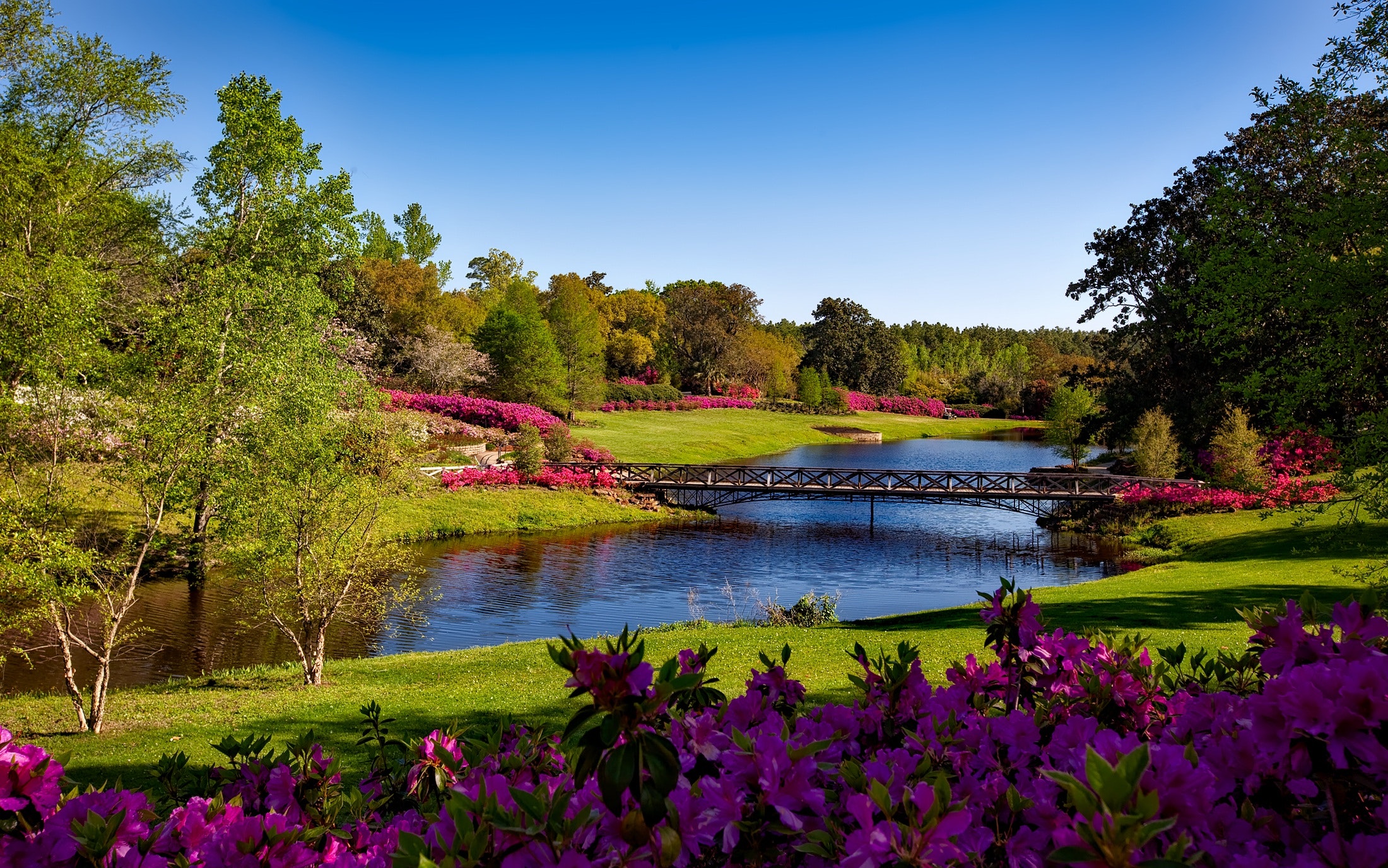
Landscaping in North Central Florida: Summer Mulch Matters
The hot summer sun in North Florida can be tough on the plants in your landscape. That, paired with the heavy rain, can easily make summer in the southeast the hardest season for your plants.
All hope is not lost, though, as there is a simple solution that keeps your plants moist, protects their roots from the heat, and helps them retain nutrients that would otherwise be washed away with heavy rain. That solution is mulch.
Why Mulch for the Summer Heat?
Mulching in the summer is a smart move for the health of your yard for many reasons — controlling your soil’s temperature is just one. Read on to learn more about why mulching in the summer is the cool thing to do.
If you’ve recently installed a new landscape and haven’t mulched it, there’s no better time than now! When temperatures are in the nineties on a daily basis, the summer heat will quickly dry out your plants and cause them to wilt. A few days of this will cause your more sensitive plants to perish and prolonged exposure can take down even some of the more hardy plants in your garden.
Pro tip: While there are many recommended varieties of heat-tolerant plants for your Florida landscape, we recommend you give your plants a fighting chance by mulching them as well.
The Benefits of Mulching In Summer
Like everything else good in life, mulch doesn’t last forever and needs to be refreshed regularly in order to work as it should. When mulch is effective, it improves your landscape’s overall look and vitality. Its many advantages include the following.
Acts as a Protective Cover for Your Soil
Mulch effectively shades your plant’s roots, keeping them several degrees cooler than the surrounding, non-mulched soil.
If you’ve ever stepped barefoot on Florida’s sandy soil during the summer you know how much of a difference a little cover can make. If the bare soil burns your skin, you’d better believe it will burn your plants too. Additionally, this helpful cover adds aesthetic value to your landscape, averts soil compaction, and prevents weed growth.
Mulch Retains Moisture
During the summer months, it’s not uncommon for it to rain for two weeks straight and then, seemingly, take a couple of weeks off. During this dry spell, whether it’s a week or just a few days, the added heat can dehydrate even the hardiest plants.
A good mulch will act like a sponge, collecting moisture during rainy times, distributing it to the plant’s root zone during breaks, avoiding evaporation, and increasing aeration. While you should still be watering your plants during the summer, a dry spell can often catch us off guard and cause us to forget to water our plants. Think of mulch as irrigation insurance, you might not always need it during the summer, but when you do, it can make all the difference.
Mulch Provides Beneficial Nutrients to the Soil
The intense rain we get during the summer months, while great for keeping your plants moist and cool, can actually cause nutrients in the soil to be diluted or washed away. You’ll often see an even yellowing of leaves during this time of year, indicating the loss of key nutrients, like nitrogen.
Mulch helps combat this by helping to reduce erosion of the nutrient-rich topsoil. As the mulch breaks down, it helps to fertilize and grow the plants it surrounds, improving soil composition.
Mulch Your Plants for Summer
If you haven’t mulched before the summer temperatures set in, we highly recommend that you do. In addition to the benefits listed above, when our Florida heat is at its worst during the sweltering summer months, mulch helps protect the soil and keep it cool. This is important because it allows for stronger tree and plant root development, which in turn improves growth and flowering.
Pro tip: If you already have mulch in your landscape that is thinning out, summer is a great time to re-mulch. With all the added rain and heat, the summer months are sure to break down the existing mulch in your landscape. Adding fresh mulch can be a great preventative measure that will serve your garden for the rest of the year.
How to Mulch
- Edge around where you are applying mulch.
- If you add over existing mulch, remove the top layer if it is too deep, turning over the old mulch to air it out and allow nutrients to disperse properly.
- Smooth out the area using a rake or similar lawn tool. The layer should be only 2 to 3 inches deep.
Protect Your Plants From the Sun With Gaston Mulch and Soil
When mulching, choose one of our high-quality products from Gaston Mulch and use our convenient mulch calculator to determine how much you will need for your project.
Can’t decide on what type of mulch to use in your landscape? We offer a variety of types and colors to match every need. Our mulch is not only attractive and long-lasting, but it’s also all-natural and made from recycled tree debris. Contact the professionals at Gaston Mulch and Soil for expert mulch advice and a quote based on your location.
